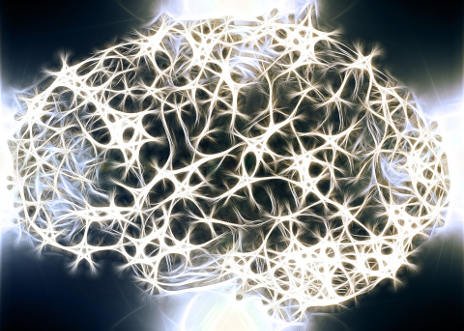What Happens When You Don’t Sleep Enough?

Understanding how important sleep is to your body is essential, especially what happens when you don’t sleep enough. After all, the main function of sleep is to rest your body and mind, preparing them for a new day. You should also know that sleep directly impacts your cellular metabolism.
We’re talking about if you don’t sleep enough, but your quality of sleep is just as important as how many hours you get. A person who sleeps six hours a day might feel just fine, while someone who sleeps 10 hours could feel constantly tired.
According to Dr. Saddichha: “insomnia is a disorder characterized by inability to sleep or a total lack of sleep, prevalence of which ranges from 10 to 15% among the general population.”
The bodies of people who don’t sleep enough are much like a machine that’s working around the clock without stopping. The end result is an inevitable collapse, sooner or later. The sooner or the later will depend on the health of each individual.
Sleep disorders are associated with many different health issues and can alter the function of any organ. In addition, getting poor quality sleep can increase your sensitivity to pain, decrease your memory capacity, and severely weaken your immune system.
What happens to your body if you don’t sleep enough: risking Alzheimer’s disease

For a long time, scientists believed there was a relationship between sleep disorders and Alzheimer’s disease. Recent studies showed an increase in biomarkers characteristic of the disease in people who don’t sleep enough. Specifically, they are beta-amyloid and tau proteins, which are associated with the onset of dementia.
In the studies, patients who had fewer than five hours of sleep a night had higher biomarker concentrations. The same was observed in people who got between six and eight hours of sleep, but of “poor quality.”
The buildup of tau proteins can create neurofibrillary tangles, which are highly destructive to your brain. High levels of beta-amyloid proteins lead to the formation of plaques. Plaques are highly toxic to cerebral neurons.
High concentrations of the two biomarkers cause excessive fatigue and speeds up degenerative processes in the brain, leaving it more vulnerable. Added to the physical and mental exhaustion you experience when you don’t sleep enough, you also run the risk of getting Alzheimer’s.
The cause and effect relationship is still a difficult question to answer, however. Concentrations of tau and beta-amyloid proteins can also lead to insomnia and interrupted sleep. Nevertheless, science has certainly given us a wake-up call to get high quality of sleep, every day.
See also: How to detect Alzheimer’s in time
Easy tips to get better quality sleep
Getting good quality sleep can improve many aspects of your health, such as:
- Fighting (or delaying) cellular aging
- Preventing physical, psychological, and emotional disorders
- Improving your appetite control and fighting weight gain
- Decreasing physical, cognitive, and emotional wear and tear to fight fatigue
- Providing the body with energy and improving your mood, leading to better work and personal performance
1-Decrease your daily stress levels

Stress is currently the number one reason people don’t sleep enough, affecting many other areas of health as well. Decreasing your stress and anxiety levels is essential to getting quality sleep and having a high quality of life.
Although it might sound impossible to get rid of stress, small changes in your attitude can make all the difference.
- Separate your personal and work lives. Respect your rest and fun time.
- Participate in activities that help you relax, such as yoga, pilates, or meditation.
- Maintain healthy habits that will allow you to expend energy and release tension.
- Prepare yourself mentally for bedtime. You should be relaxed and calm, in a positive state of mind. To do this, set your daily obligations and cell phone aside, have a cup of tea, and do some deep breathing.
We recommend reading: A Japanese technique for eliminating stress
2-Keep a balanced diet
A poor diet combined with regular digestive problems can greatly impair your quality of sleep. In addition, it also weakens your immune system and can lead to the development of various diseases.
It’s a good idea to opt for a light dinner low in carbohydrates to facilitate digestion so that your stomach doesn’t keep you up at night. It’s also crucial to eat a balanced diet throughout the day.
3-Get regular physical activity

Getting regular exercise has so many physical and mental health benefits. It manages your weight and regulates your cardiovascular and respiratory systems, as well as improving your self-esteem.
Just walking 30 to 45 minutes a day can help keep your body safe from the damage it suffers when you don’t sleep enough. In addition, it also improves your physical and cognitive performance during your day.
We hope you liked our article, for more information on sleeping click below!
All cited sources were thoroughly reviewed by our team to ensure their quality, reliability, currency, and validity. The bibliography of this article was considered reliable and of academic or scientific accuracy.
- Echávarri Zalba, C., & Erro, M. E. (2007). Trastornos del sueño en el anciano y en las demencias. Anales Del Sistema Sanitario de Navarra. https://doi.org/10.4321/S1137-66272007000200014
- Eastwood, R. (2004). Factores de riesgo y factores protectores en la enfermedad de Alzheimer. Revista de Psicogeritría.
- Miró, E., Cano-Lozano, C., & Buela-Casal, G. (2005). SUEÑO Y CALIDAD DE VIDA. Revista Colombiana de Psicología. https://doi.org/10.1007/s00253-011-3421-1
This text is provided for informational purposes only and does not replace consultation with a professional. If in doubt, consult your specialist.








